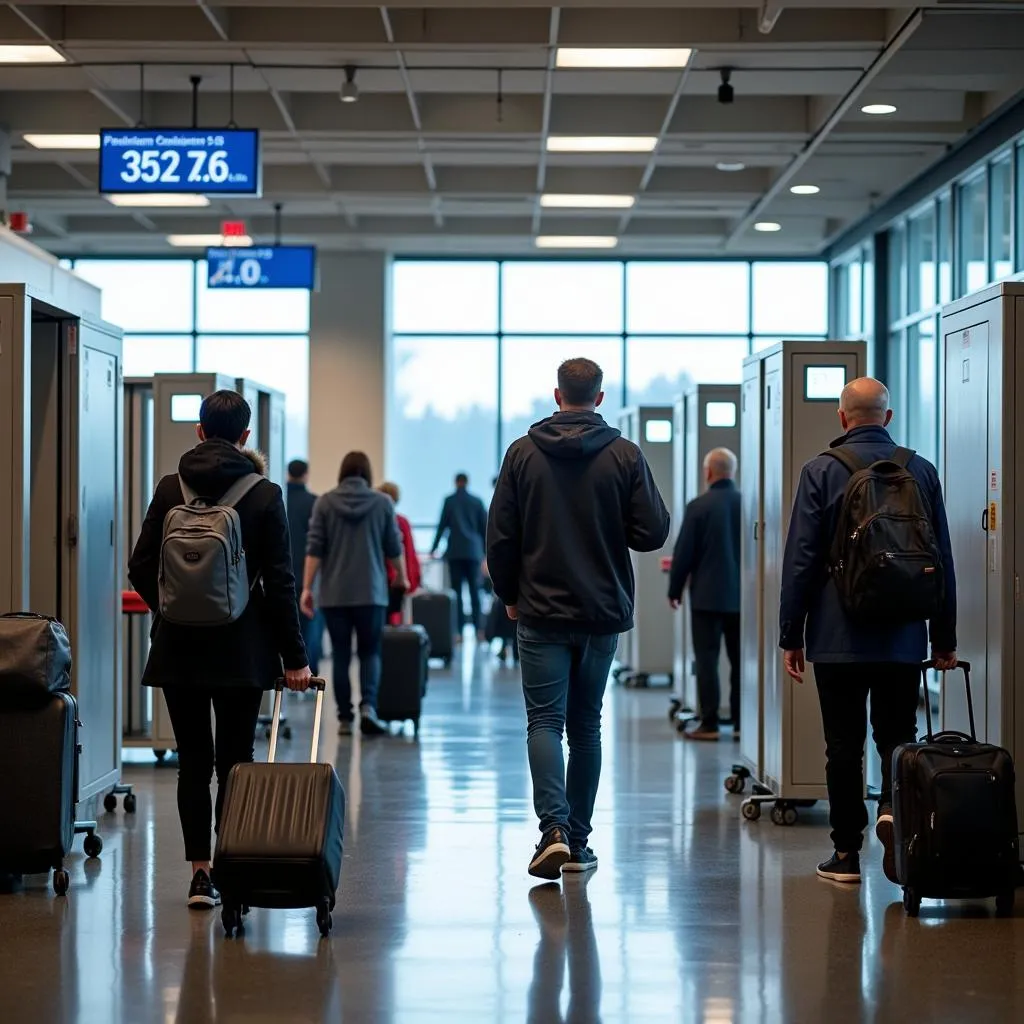A domestic airport is an airport that specifically handles flights within a country’s borders. These airports are essential to a nation’s transportation infrastructure, connecting cities and regions within its territory. They differ from international airports, which cater to flights arriving from or departing to other countries.
 Domestic Airport Terminal
Domestic Airport Terminal
Understanding Domestic Airports
Domestic airports serve as hubs for domestic airlines, providing a gateway for passengers to travel within a country’s boundaries. They vary significantly in size and capacity, ranging from small regional airports serving smaller aircraft to large, bustling hubs accommodating millions of passengers annually.
Key Characteristics of Domestic Airports
Several key features distinguish domestic airports from their international counterparts:
- Flight Operations: Domestic airports exclusively handle flights operating within the same country.
- Immigration and Customs: Unlike international airports, domestic airports do not have immigration or customs checkpoints for passengers arriving on domestic flights.
- Terminal Facilities: While some domestic airports may share terminals with international flights, they typically have designated areas for domestic departures and arrivals.
- Security Procedures: Security checks at domestic airports generally involve less stringent screening processes compared to international airports.
 Domestic Airport Security Check
Domestic Airport Security Check
Advantages of Domestic Airports
Domestic airports offer several benefits:
- Enhanced Connectivity: They facilitate travel and trade within a country, promoting economic growth and regional development.
- Convenience and Accessibility: Domestic airports offer travelers convenient options for reaching various destinations within their country.
- Time Efficiency: Direct flights between domestic airports often save travelers valuable time compared to alternative modes of transportation.
Domestic Airport vs. International Airport: Key Differences
The primary distinction lies in the type of flights handled: domestic airports manage flights within a country, while international airports accommodate flights between countries. This difference results in variations in:
- Passport and Visa Requirements: Domestic flights do not require passengers to carry passports or visas.
- Baggage Allowance: Domestic airlines may have different baggage allowance policies compared to international carriers.
- Currency Exchange: Currency exchange services are less common at domestic airports as transactions typically occur in the local currency.
Examples of Major Domestic Airports
Many countries have extensive networks of domestic airports. Some well-known examples include:
- Hartsfield-Jackson Atlanta International Airport (ATL), USA: Despite its name, ATL primarily serves as a domestic hub for Delta Air Lines.
- Beijing Capital International Airport (PEK), China: While handling international flights, PEK is also a major hub for domestic travel within China.
- Indira Gandhi International Airport (DEL), India: DEL is a major hub for both domestic and international flights, connecting major cities across India.
 Domestic Airport Departure Board
Domestic Airport Departure Board
Conclusion
Domestic airports play a vital role in facilitating air travel within a country’s borders. Their focus on domestic connectivity, streamlined procedures, and contribution to regional development make them essential components of a nation’s transportation infrastructure. Understanding the distinction between domestic and international airports is crucial for travelers planning their journeys and expecting a seamless travel experience.
For any assistance with your travel plans, please contact our 24/7 customer support team at +13089626264, email us at [email protected], or visit our office at 404 Bothwell St, Oxford, NE 68967, USA.

